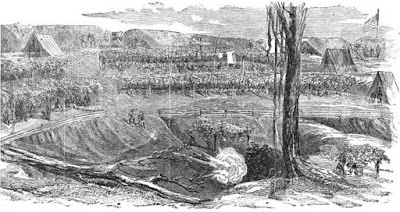March 14.
Mr. Webster has not
a favorable response from any Northern man of any influence. It is hard to
believe that a man who has been so intellectually consistent should at once
overthrow his grand reputation; but who can tell what an ambitious or
disappointed man will not do to accomplish his object? Oh, how priceless is
principle! . . . The delegate of Congress from Mexico (not yet received as
such, because Congress has as yet established no Territorial Government over
it) tells me the New-Mexicans are very averse to slavery, and that labor is too
cheap, and the danger of slaves escaping too great, for any slaveholder to meet
the risk of transferring his property there; that climate and soil are not
adapted to it, &c. But the opening of mines, as I have said before, would
create a demand for them; and all that is said of outdoor labor in reference to
the uncongeniality of the climate does not apply to menial service. Besides,
though the Mexicans may be hostile to slavery, yet they are a feeble,
effeminate, unprincipled race; and ten strong Southern men, with their energy
and activity, with their domineering and overpowering manners, would be a full
match for a hundred of the best Mexicans that could be found. There is no
absolute security but in the proviso.
As soon as we had
the President's message, in which he proposed non-action on the part of
Congress, and that the Territories should be left to form their own
institutions, I foresaw some defection from the spirit which had before
governed Congress. I therefore wrote to some gentlemen in New York, advising
first that they should send out a regular missionary, who should traverse all
the settlements in that country, and pre-occupy the minds of the people against
slavery; or at least that they should send out antislavery tracts in English
and Spanish, and scatter them throughout the whole region. The first project
was supposed to be too expensive; but the latter has been adopted, and an
address to the inhabitants will be distributed there in both languages to every
one who can read. We are determining mighty events; and the occasion, therefore,
is worthy of a mighty struggle.



